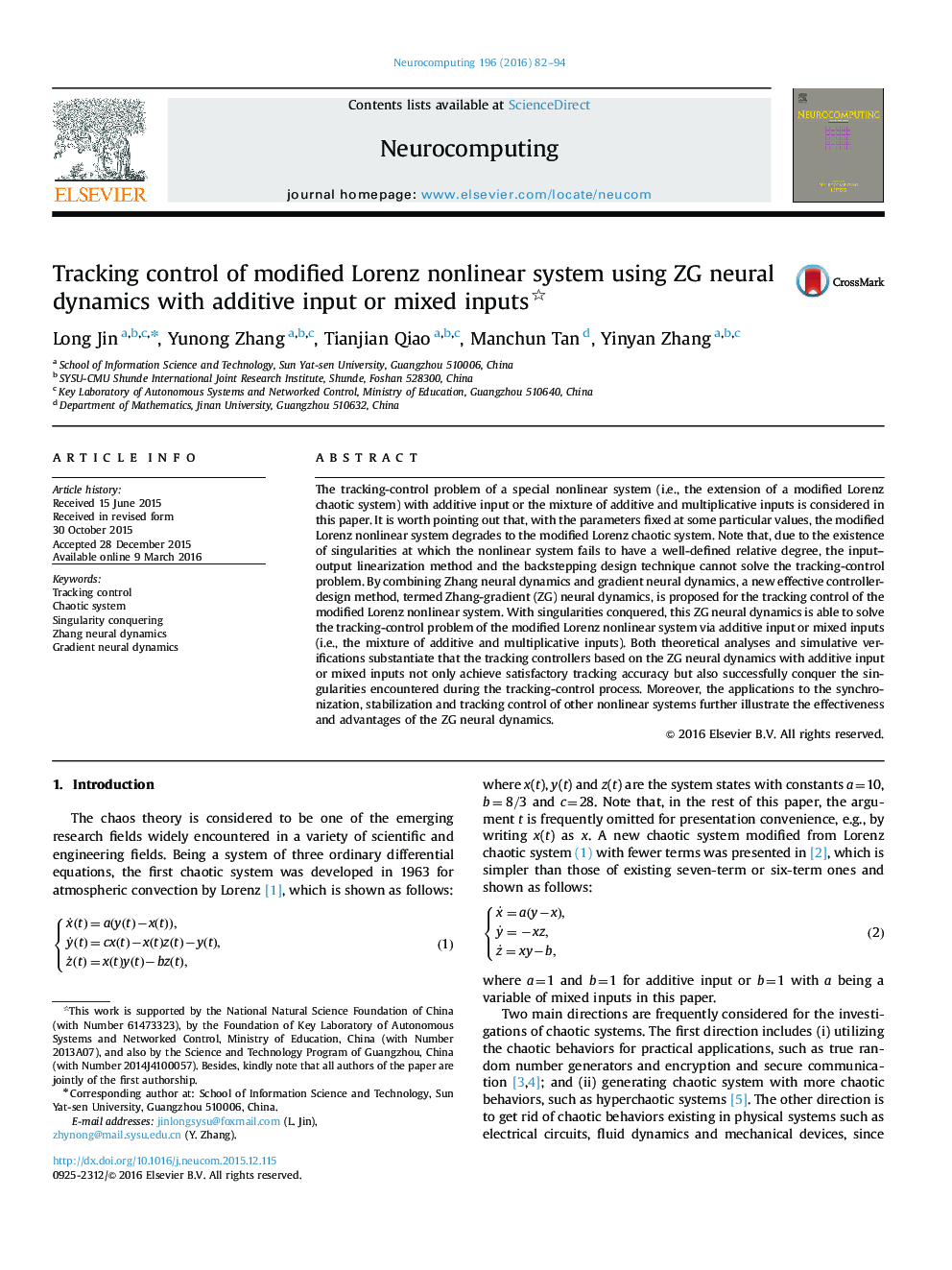| Article ID | Journal | Published Year | Pages | File Type |
|---|---|---|---|---|
| 408244 | Neurocomputing | 2016 | 13 Pages |
•Tracking-control problems of chaotic systems are solved with singularities conquered.•A new controller-design method termed ZG neural dynamics is constructed.•The tracking-control problem of nonlinear systems with mixed inputs is handled.•The tracking-error bounds and convergence rates of the controllers are proved.•The ZG neural dynamics is applied to the control of other nonlinear systems.
The tracking-control problem of a special nonlinear system (i.e., the extension of a modified Lorenz chaotic system) with additive input or the mixture of additive and multiplicative inputs is considered in this paper. It is worth pointing out that, with the parameters fixed at some particular values, the modified Lorenz nonlinear system degrades to the modified Lorenz chaotic system. Note that, due to the existence of singularities at which the nonlinear system fails to have a well-defined relative degree, the input–output linearization method and the backstepping design technique cannot solve the tracking-control problem. By combining Zhang neural dynamics and gradient neural dynamics, a new effective controller-design method, termed Zhang-gradient (ZG) neural dynamics, is proposed for the tracking control of the modified Lorenz nonlinear system. With singularities conquered, this ZG neural dynamics is able to solve the tracking-control problem of the modified Lorenz nonlinear system via additive input or mixed inputs (i.e., the mixture of additive and multiplicative inputs). Both theoretical analyses and simulative verifications substantiate that the tracking controllers based on the ZG neural dynamics with additive input or mixed inputs not only achieve satisfactory tracking accuracy but also successfully conquer the singularities encountered during the tracking-control process. Moreover, the applications to the synchronization, stabilization and tracking control of other nonlinear systems further illustrate the effectiveness and advantages of the ZG neural dynamics.
